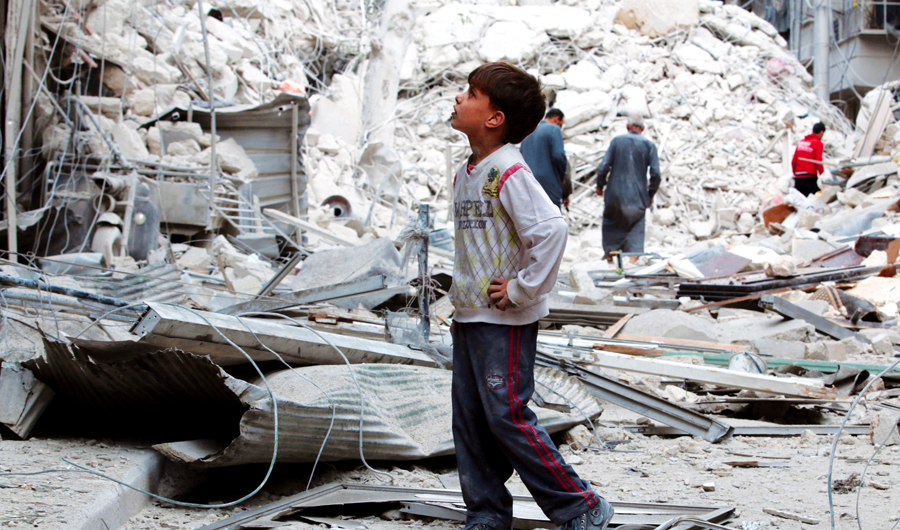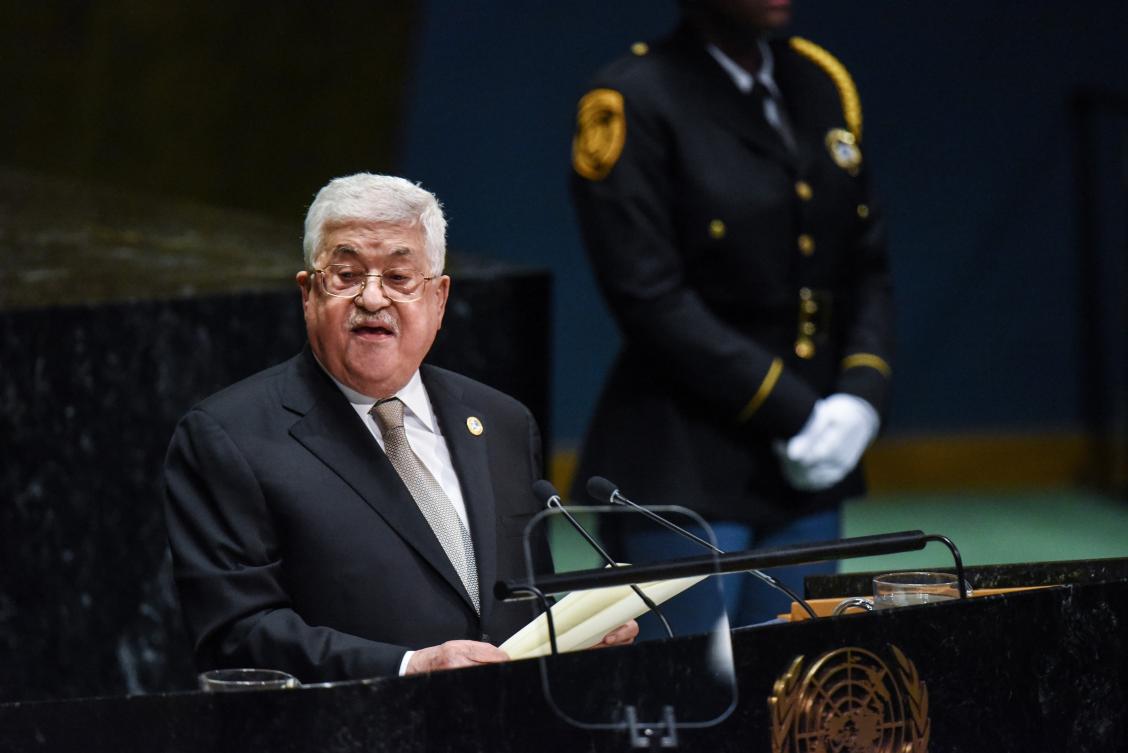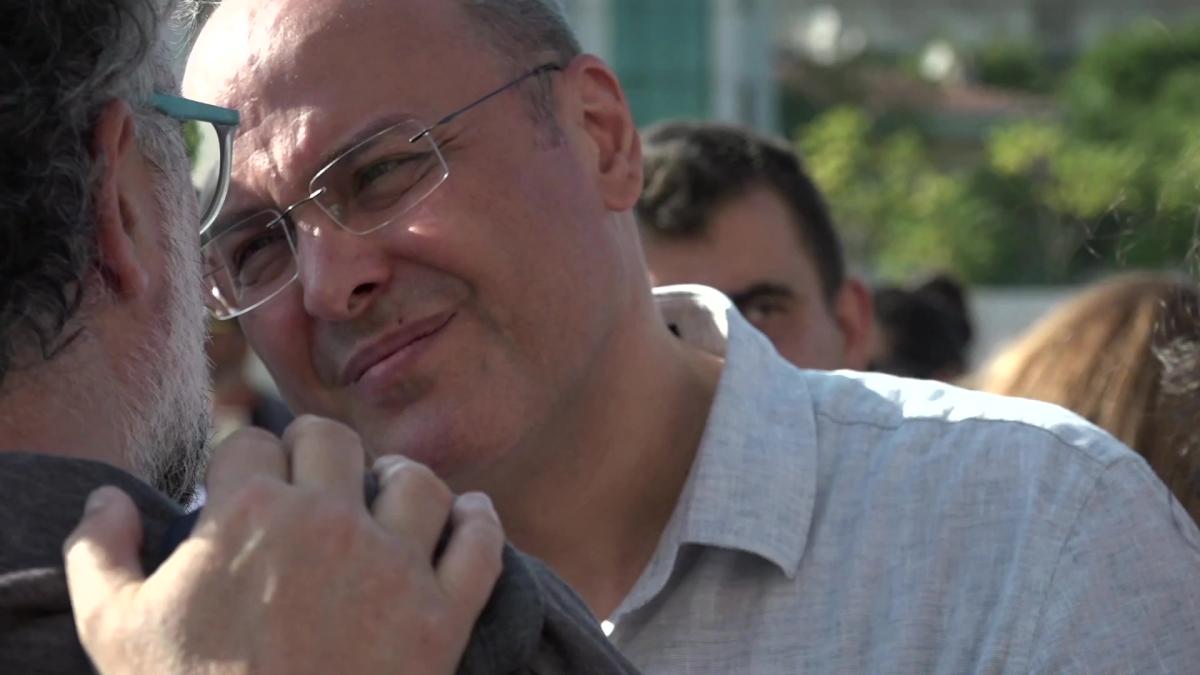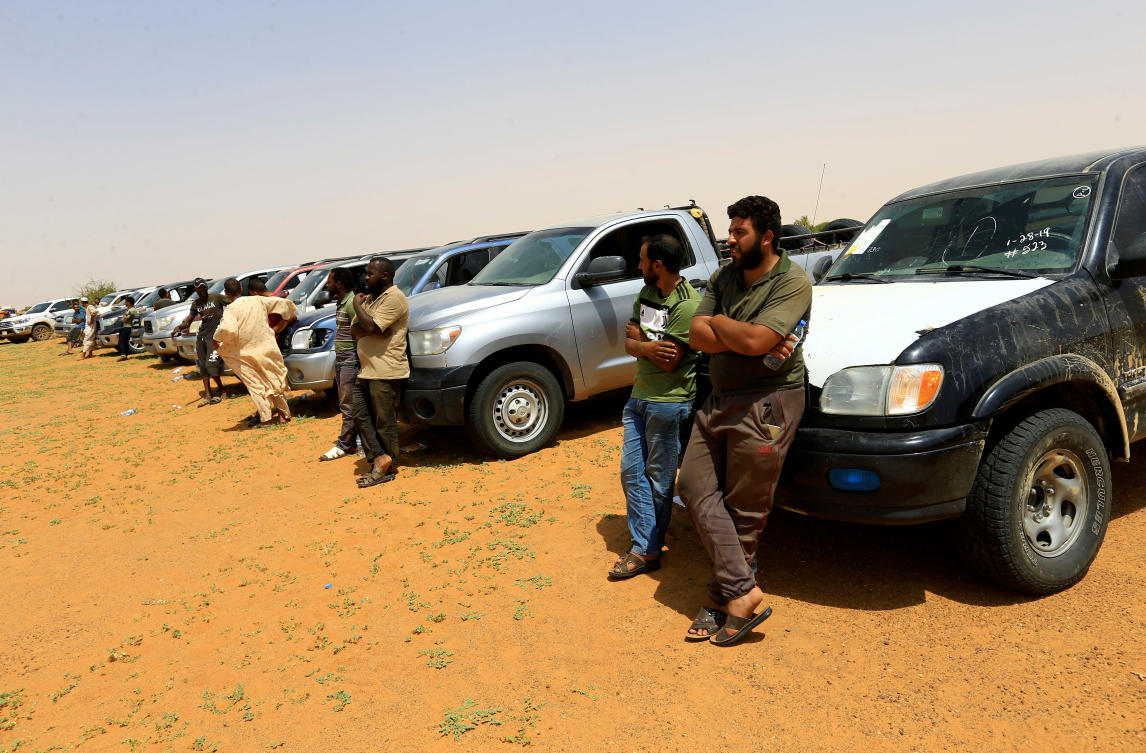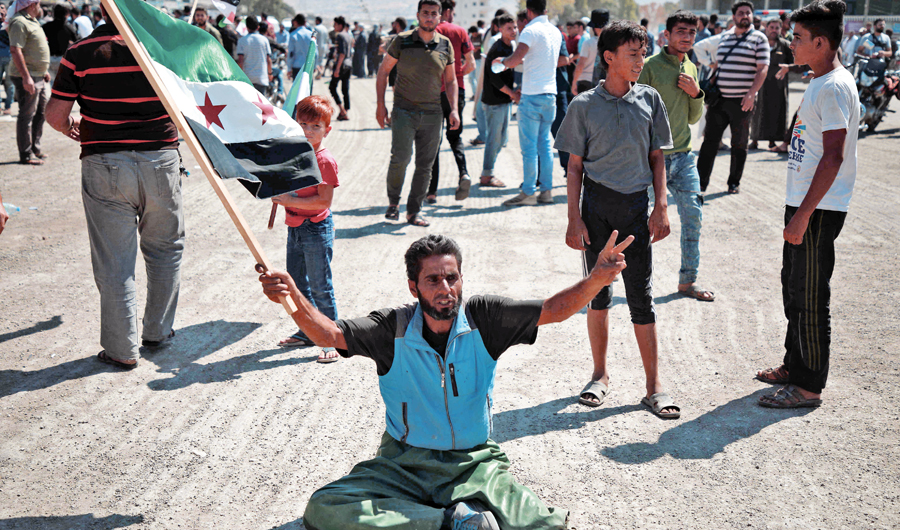BEIRUT: As dozens of heads of state convene for the annual UN General Assembly in New York this week, the lingering conflict in Syria is taking a back seat while tensions in the Arabian Gulf and global trade wars take center stage.
Now in its ninth year, many Syrians fear the unresolved war has become a footnote in a long list of world crises, with weary leaders resigned to live with Syria’s Bashar Assad ruling over a wrecked and divided country for the foreseeable future.
On the eve of the global gathering in New York, UN Secretary-General Antonio Guterres announced that a long-awaited committee that would draft a new Syrian constitution has been finalized — a step the UN hopes will put the war-ravaged country on track for a political solution.
But few see any real chance that the committee can make significant progress toward that end.
“The world has forgotten about us — not that anyone cared about Syria to begin with,” said Hussein Ali, a 35-year-old internally displaced father of two. He now lives with his family in one rented room in the opposition-controlled northern town of Azaz, near the Turkish border. “The rise of Daesh made the West care momentarily, but not anymore,” he said, using an Arabic acronym for the Daesh group.
Most of Syria has returned to regime control after eight years of war. The exceptions are the opposition-held bastion of Idlib in the northwest, where fighters, militants and their families from all over the country have been cornered, and the oil-rich northeast, held by US-backed Kurdish groups.
A frozen conflict
The violence has largely tapered off in most of the country, but few among the nearly 6 million refugees scattered across the globe have returned. Many fear detention if they come home — or they simply have no homes to return to.
Entire towns and villages are in ruins. The West will not contribute to reconstruction plans as long as Assad is in power and other countries are unwilling to invest without there first being a political settlement.
In Idlib, a Russia-backed regime offensive to recapture the province continues to claim lives. Hundreds have been killed and more than 400,000 displaced in the past four months under Syrian and Russian airstrikes. But the bloodshed hardly makes a dent in global news.
“The world apparently has long since tired of the war, and resigned itself to frozen conflict, with a nationwide cease-fire as the best possible scenario,” said Heiko Wimmen, project director for Iraq, Syria and Lebanon at International Crisis Group.
Syria’s conflict was a domino effect of the so-called Arab Spring uprisings that began in late 2010, toppling dictators in Tunisia, Egypt and Libya. What started in March 2011 as largely peaceful demonstrations against the Assad family rule turned into an armed insurgency following a brutal regime crackdown. The conflict eventually became a proxy war pitting the US, Turkey and Gulf countries who supported the opposition, against Russia, Iran and Hezbollah who fought alongside the regime. In the chaos, extremists such as Daesh flourished, seizing a third of Syria and Iraq.
Nearly half-a-million people have been killed and half of Syria’s prewar population displaced. The opposition has been crushed for the most part, and Assad is widely considered to have prevailed militarily. Daesh militants who dominated the news for years have been defeated, although the group continues to stage sporadic insurgent attacks.
A tentative cease-fire has been in place in Idlib since the end of August, but there is no suggestion it will be anything other than a pause before regime troops and their allies regroup and relaunch their campaign.
“The Syrian regime appears determined to clench back every last bit of territory, without the tiniest bit of compromise,” Wimmen said. “As long as Damascus persists in its attitude, and is enabled by its foreign backers, the war will continue.”
Diplomatic efforts
While the world remains deadlocked over Syria, there is no initiative on the horizon to help resolve it. The UN’s current Syria envoy Geir Pedersen is the fourth to hold the post after the previous three resigned following years of mediating peace talks that led nowhere.
The constitutional committee announced on Monday is made up of 150 members divided equally among regime, opposition and civil society members. It is tasked with drafting a new Syrian constitution in talks facilitated by the UN in Geneva. Desperate for a breakthrough, Guterres touted it as “the beginning of the political path out of the tragedy toward a solution.”
Syria is scheduled to hold presidential elections in 2021, and the UN hopes the talks can help create a climate and mechanism for holding a neutral and fair vote. But with a clear military upper hand, Assad regime is unlikely to offer any concessions, and Syrian officials have suggested he will run again.
A Western diplomat called it an “important step” in the sense that talks overseen by the UN would provide some form of international scrutiny over the balloting.
“It will not be a solution for the war but rather a method to get a Syria platform going and try to be more inclusive than the two-side indirect talks,” the diplomat said, referring to several rounds of talks between the regime and the opposition in Geneva overseen by the UN envoy. The diplomat spoke on condition of anonymity to discuss sensitive issues.
Underlining the distrust, Syrian lawmaker Safwan Qurabi said the committee is “sensitive and is also dangerous.”
“What is planned through this committee is to steal Syria’s political decision, which they couldn’t do through destructive military action,” Qurabi said, referring to the opposition and their foreign supporters.
Far from over
While the violence may have diminished, analysts say the war is likely to continue for a long time.
At its height, the conflict unleashed a global migrant crisis that continues to reshape Europe and neighboring countries that once opened their borders to millions fleeing war. That reception has chilled over the past year. Suffering an economic downturn and rising unemployment, the mood in Turkey, Lebanon and Jordan has soured, and calls for the refugees to return home are growing.
Turkish President Recep Tayyip Erdogan says his country can no longer shoulder the burden of 3.6 million refugees it hosts, and earlier this month, he threatened to “open the gates” and allow a flood of Syrian refugees to leave Turkey for Western countries unless a so-called “safe zone” is established in Syria soon in negotiations with the US
The rising resentment against Syrians seems to be behind a new wave of migrants sailing from Turkey to the Greek island of Lesbos every day.
Erdogan used his speech at the UN on Tuesday to highlight the humanitarian cost of the war by holding up a photo of Aylan Kurdi, a 3-year-old boy whose lifeless body was found on a Turkish beach in 2015 and drew the world’s attention to the plight of refugees.
Erdogan said the world must “never forget” the world’s “baby Aylans.”
An all-out Syrian regime offensive to recapture Idlib, which seems inevitable, will likely have disastrous consequences, pushing hundreds of thousands of people toward the Turkish border.
“Assad won’t go away, since pushing him out is no longer an option, but neither is rehabilitating him, or rebuilding the country in his presence,” Wimmen said. “The status quo of misery will likely persist.”
